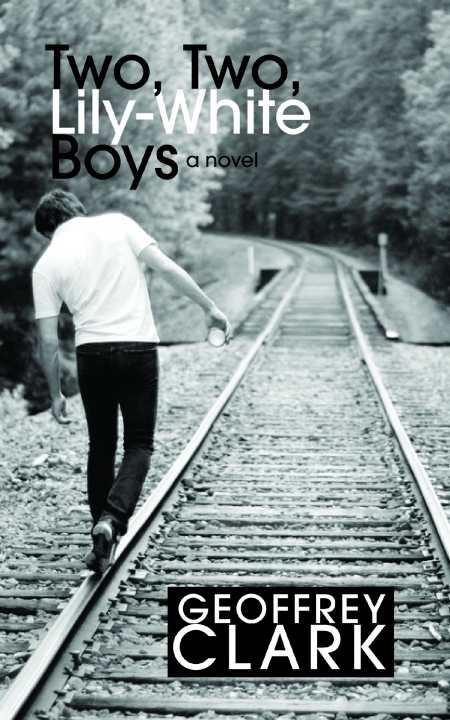Two, Two, Lily-White Boys
It’s mid-August of 1953, and fourteen-year-old Larry Carstairs and friend and classmate Andy Dellums have just arrived at Boy Scout Camp Greavy, near Traverse City, Michigan. With any luck at all, Larry figures, he’ll get to stay an extra week. What he’s not figuring on is Russell “Curly” Norrys, a curious, charismatic, wisecracking, fast-talking seventeen-year-old with more stories than merit badges. Curly is also homophobic—maybe even sociopathic—and Geoffrey Clark ups the ante in this coming-of-age story with a tragic and unexpected outcome.
Clark’s prose is sparse and convincing, the conventions of craft so deftly applied in this fictive account that the line between right and wrong appears as if we might be able to pick it up and apply it somehow to the more difficult issues of morality that we face today. However, as Curly points out, nothing is that easy—not now, and not then, either. Whether you see him as sociopath or simply a lost boy, Curly is like a dead-on arrow on the archery range: “Ambiguity … that’s the river that runs through (my) life … sometimes it’s like I can’t tell what anything really is … whether things’r off or on … in or out, is something gray more black than it is white? Or black? Always something keeping me from knowing what’s really happening.”
For his part, Curly is slick enough to navigate the gray between the black and white and come out lily-white. Larry, on the other hand, can’t quite discern the depths of evil that lie in the hearts of those he’s befriended. Is it possible, he’s left to wonder, that Curly had something to do with Andy’s death? Or, is it just as plausible that everything happened exactly as Curly said it had? “Was that all a lie too—no, an ambiguity? And how will I ever know?”
Clark’s story is short in pages but long in sticking power. The title alone intrigues and comes from the second verse of Green Grow the Rushes, Ho, a popular folk song said to contain references to Greek mythology, Christian teachings, astronomical mnemonics, even pagan cosmology. All open to interpretation—and ambiguity. So too, is Geoffrey Clark’s masterpiece.
Reviewed by
Chris Henning
Disclosure: This article is not an endorsement, but a review. The publisher of this book provided free copies of the book to have their book reviewed by a professional reviewer. No fee was paid by the publisher for this review. Foreword Reviews only recommends books that we love. Foreword Magazine, Inc. is disclosing this in accordance with the Federal Trade Commission’s 16 CFR, Part 255.

